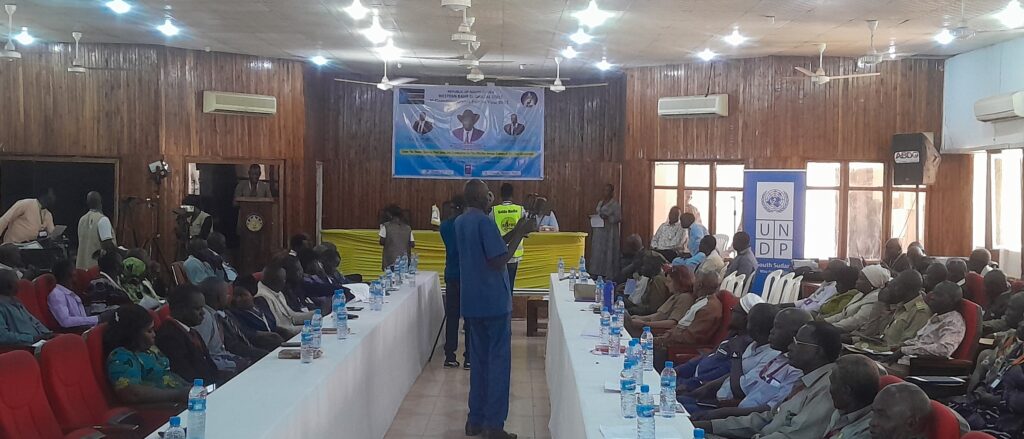A three-day forum for county commissioners in South Sudan’s Western Bahr el Ghazal state concluded with a series of resolutions aimed at improving governance, security and economic stability amid challenges including an influx of refugees and internal displacement.
The forum, held from Oct. 23-26 under the theme “Building trust, unity and coordination for effective service delivery,” brought together local officials to address pressing issues across the state’s counties.
In his closing address, State Deputy Governor Zachariah Joseph Garang said the forum successfully identified key challenges. “We are very happy to have a good conclusion of the commissioners’ forum with key resolutions today,” Garang said. “I hope this forum has provided us with the key challenges in the counties that will be presented at the governor’s forum.”
He emphasized the state’s economic concerns and the need for a policy focus on agriculture and education, underpinned by security. “We are concerned about the economic situation in our counties and payams that our community is facing,” he said.
The forum identified several pressing concerns, including the influx of refugees from the conflict in Sudan and the presence of internally displaced people (IDPs), illegal land demarcation, logging, and the ongoing construction of petrol stations within residential areas in Wau town.
On financial governance, the forum urged all three counties to prepare and present annual budgets and establish consolidated accounts in line with the Public Financial Management and Accountability Act of 2011. It specifically called on the Raja County commissioner to ensure transparency in the county’s share of gold revenues, recommending that the community’s 3% share be managed to fund local development priorities.
Regarding security and resources, participants were urged to prioritize peaceful coexistence among communities over border disputes. To address illegal land sales and settlements, they resolved to form a land management committee at the gubernatorial level. The Ministry of Agriculture was directed to enforce an immediate ban on illegal tree cutting and forest destruction.
On development and social issues, the state Ministry of Agriculture was tasked with providing timely delivery of seeds and tractors, while Raja County was encouraged to revive its sugarcane plantation project. The Ministry of Youth, Culture, and Sports was tasked with building cultural centers and promoting youth engagement. Participants also emphasized empowering women and youth economically, socially, and politically.
The forum also recommended that key state ministries—Animal Resources, and Housing and Public Utilities—establish functional departments at the county level to decentralize services. It reaffirmed the importance of establishing county and municipal councils as stipulated in the Local Government Act, 2009, a process delayed by the economic situation.
Other resolutions included a call for counties to develop plans to integrate IDPs and returnees through land allocation and social services, and the creation of additional safe houses and one-stop centers for survivors of gender-based violence.
Humanitarian and development partners, including U.N. agencies and non-governmental organizations, were encouraged to enhance collaboration with local authorities and extend services to hard-to-reach areas.




